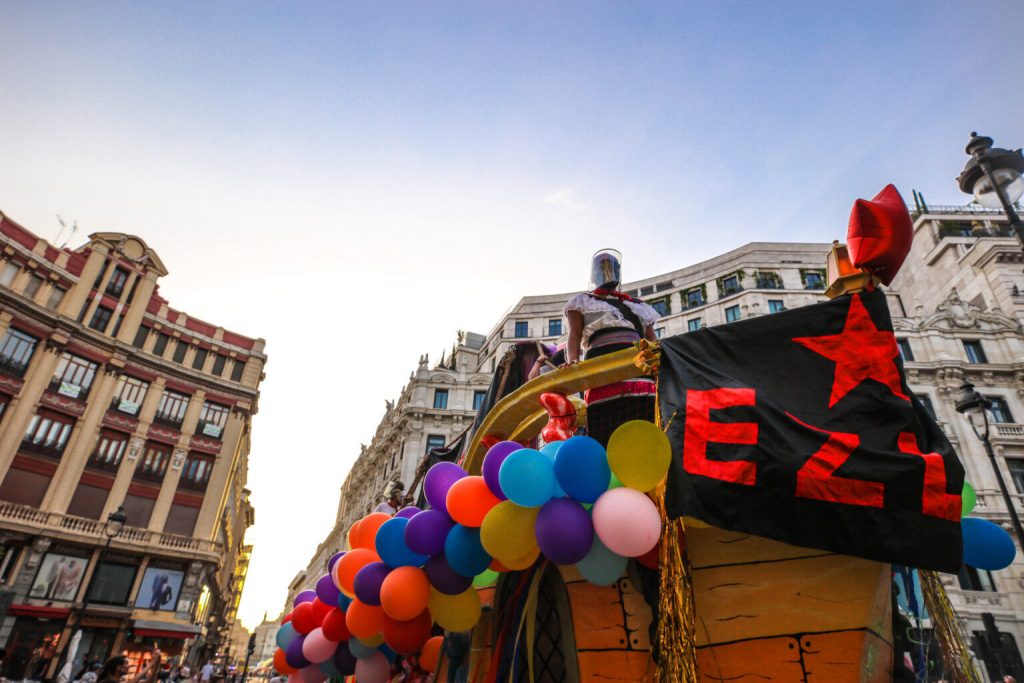
“We were not conquered!” Photo: Daliri Oropeza
By: Raúl Zibechi
For a long time some Marxists claimed that capitalism has structural and economic limits, based on laws that would make its (self-) destruction inevitable. These laws are inherent to the system and are related to central aspects of the functioning of the economy, such as the law of the decreasing tendency of the rate of profit, analyzed by Marx in Capital.
This thesis led some intellectuals to speak of the “collapse” of the system, always as a consequence of its own contradictions.
More recently, more than a few thinkers argue that capitalism has environmental limits that would lead it to destroy itself or at least to change its most predatory aspects, when in fact what has limits is life itself on the planet and, in particular, that of the poor and downtrodden half of its population.
Today we know that capitalism has no limits. Not even revolutions have been able to eradicate this system since, time and again, within post-revolutionary societies capitalist social relations expand, and from within the State, the bourgeois class in charge of making them prosper re-emerges.
The expropriation of the means of production and exchange was, and will continue to be, a central step to destroy the system, but, more than a century after the Russian revolution, we know that it is insufficient, if there is no communal control of those means and of the political power in charge of managing them.
We also know that organized collective action (class, gender and skin color struggle, against oppressions and oppressors) is decisive to destroy the system, but this formulation is also partial and insufficient, albeit true.
The updating of the thinking on the end of capitalism cannot but go hand in hand with the resistances and constructions of the peoples, particularly the Zapatistas and the Kurds of Rojava, the native peoples of various territories of our America, but also the black and peasant peoples, and in some cases what we do in the urban peripheries.
Some points seem central to overcoming this challenge.
The first is that capitalism is a global system that encompasses the entire planet and must expand permanently in order not to collapse. As Fernand Braudel teaches us, scale was important in the establishment of capitalism, hence the importance of the conquest of America, since it allowed an embryonic system to spread its wings.
Local struggles and resistances are important, they can even bend capitalism on that scale, but to end the system it is essential to have an alliance/coordination with movements in all continents. Hence the tremendous importance of the Tour for Life that the EZLN is carrying out these days in Europe.
The second is that the system is not destroyed once and for all, as we debated during the seminar Critical Thinking in the Face of the Capitalist Hydra, in May 2015. But here is an aspect that challenges us deeply: only constant and permanent struggle can suffocate capitalism. It is not severed with a chop, like the heads of the Hydra, but in another way.
Strictly speaking, we must say that we do not know exactly how to put an end to capitalism, because it has never been achieved. But we are sensing that the conditions for its continuity and/or resurgence must be limited, subjected to strict control, not by a party or a State, but by organized communities and peoples.
The third point is that capitalism cannot be defeated if another world is not built simultaneously, other social relations. This other or new world is not a destination point, but a way of living that in its daily life prevents the continuity of capitalism. The forms of life, the social relations, the spaces that we are capable of creating, must exist in such a way that they are in permanent struggle against capitalism.
The fourth is that, as long as the State exists, there will be a chance for capitalism to expand again. Contrary to certain thinking, let us say progressive or leftist, the State is not a neutral tool. The powers from below, which are non-state and autonomous powers, are born and exist to prevent the expansion of capitalist relations. They are, therefore, powers by and for the anti-capitalist struggle.
Finally, the new post-capitalist world is not a destination location, it is not a paradise where the good life is practiced, but a space of struggle in which, probably, peoples, women, dissidences and people from below in general, will be in better conditions to continue building diverse and heterogeneous worlds.
I believe that if we stop fighting and building the new, capitalism is reborn, even in the other world. Viejo Antonio’s story that the struggle is like a circle, which begins one day but never ends, has enormous relevance.
Originally Published in Spanish by La Jornada on Friday, November 19, 2021.
https://www.jornada.com.mx/2021/11/19/opinion/021a1pol
Re-Published with English interpretation by the Chiapas Support Committee. Re posted by Schools for Chiapas.
